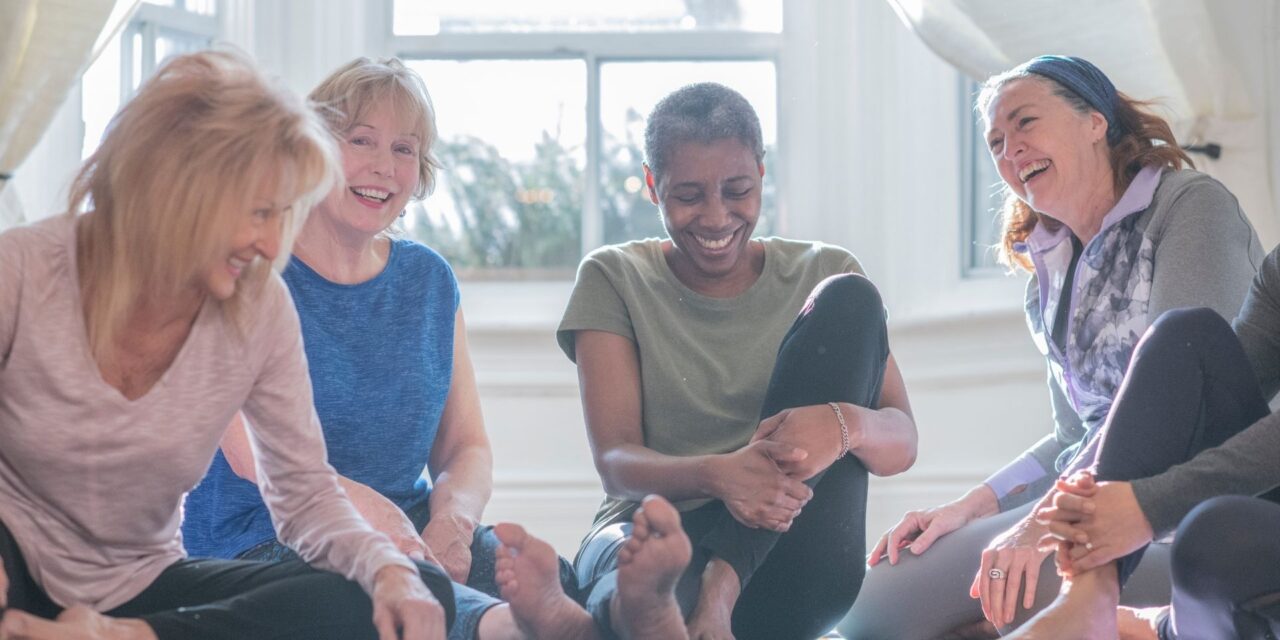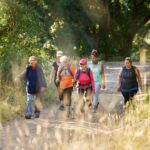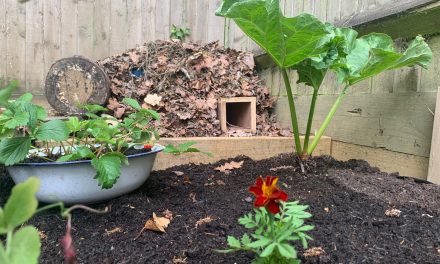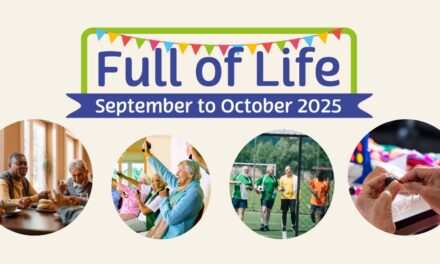That awkward feeling of wanting to make new friends might be something we associate with our childhood years, but making new connections isn’t a challenge confined to the school playground. It’s a situation we may find ourselves in at many points in life.
You might find yourself having more free time after you’ve retired, and not being sure how to fill your days. Or perhaps you’ve changed career and have a new set of colleagues to get to know.
You may have been through a divorce, been bereaved or moved to a new area, and now find yourself in a new situation where you’re trying to make connections.
There’s lots of local support
If you’re feeling a bit daunted by the idea of starting afresh, don’t worry. Feeling lonely is totally normal, with national surveys showing that half of adults in Great Britain report feeling lonely occasionally, sometimes, often, or always.
A good place to start is to ask yourself, ‘do you know what loneliness looks like?’, both in yourself and those around you. The local Face Loneliness campaign in East Sussex encourages people to take notice of how they’re feeling, and take action to stop yourself from getting in a position where loneliness harms your mental and physical health.
One-on-one guidance
If you’re over the age of 40 and feel like you need some more tailored support to make friends, East Sussex County Council’s Life Transitions service can offer just that.
When you contact the service, you’ll have an informal chat where you can ask any questions. Then, if you decide to go ahead, you’ll be paired up with a trained volunteer. They will guide you through informal, non-judgemental conversations to think about and plan for something coming up in your future. They cover a whole host of life situations, including changes in health, family and work, but their remit also includes offering a helping hand with your social life.
So, how could a volunteer support you to make new friends?
- Your volunteer will help you think about why making new friends is important to you, and what type of friendship you’re looking for.
- They’ll also ask you about your interests. This could be hobbies, activities or causes you care about.
- Then your volunteer can help you think about places, environments or social opportunities that might feel comfortable to you. If you’re feeling relaxed, you’ll be better placed to take the first step in meeting people with similar interests.
- They’ll help you think about any practical challenges, such as transport or health issues, that might be causing barriers. Then they’ll help you think about possible solutions or support.
- Finally, they’ll help support you to set achievable goals – for example, identifying an event (e.g. class, club, talk, organised walk) that you might be willing to try, and then building on that goal to include plans for when you will go.
Take the first step
Putting yourself out there might feel intimidating, but the Life Transitions team are on hand to guide you. Sessions offer the time, space and support to feel more confident and in control of your circumstances. It’s important to note, however, that volunteers do not offer a counselling service. The nature of having one-to-one conversations will inevitably provide some level of emotional support, but this is not the sole aim of the service. The volunteers are not trained counsellors.
Life Transitions is aimed at people aged over 40. It is available to residents of East Sussex, dependent on volunteer capacity (excluding Brighton and Hove). Sessions are available in-person and online, dependent on availability and location.
So what are you waiting for? Take the first step in taking control of your future. Visit the Life Transitions webpage or email LifeTransitions@eastsussex.gov.uk for more information.
Want to read more stories of connection? Why not try these Your East Sussex articles:
- Read a first-person account of how to make friends as an adult
- Find out more about the Life Transitions service and what other life changes they can help guide you through
- Discover how libraries can play a key part in feeling connected
- Hear from local volunteers who say giving back to their community has brought a positive change to their lives







